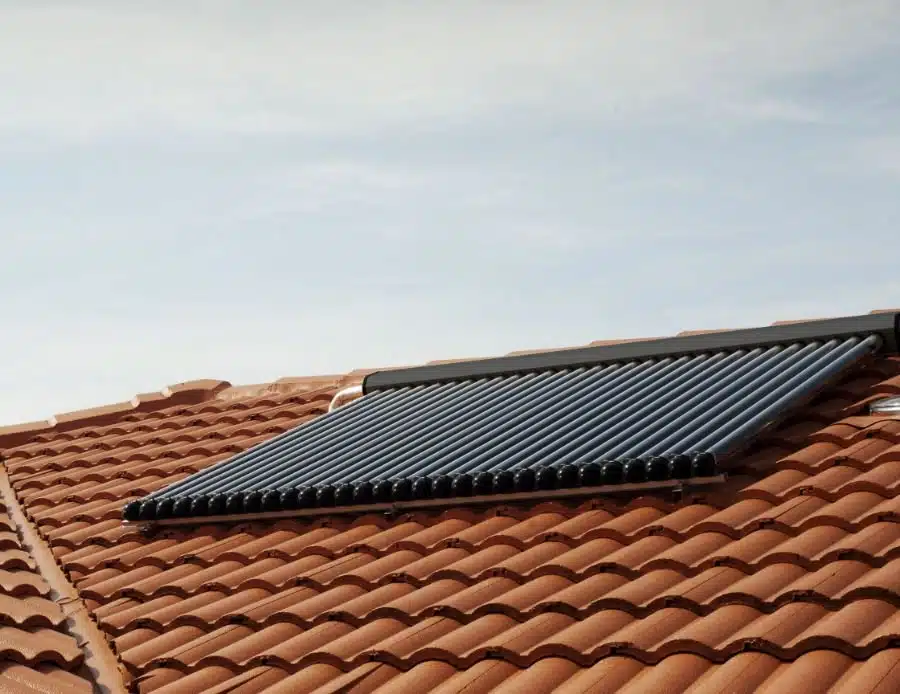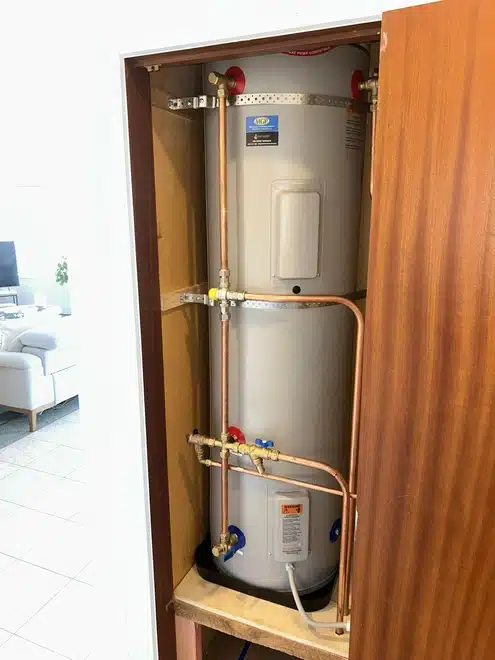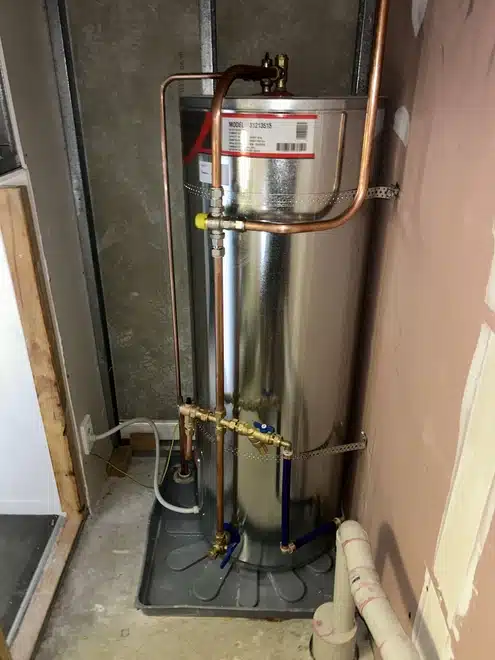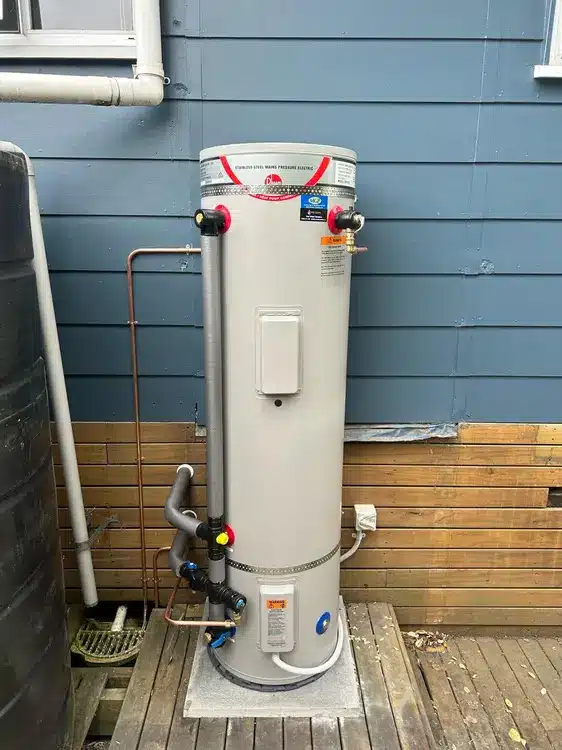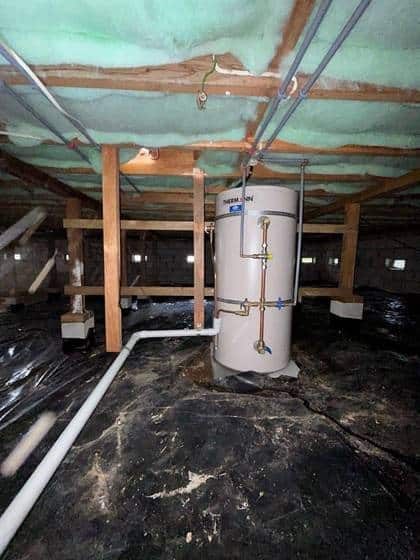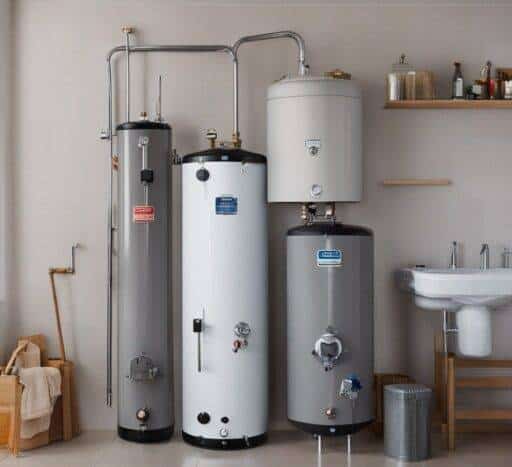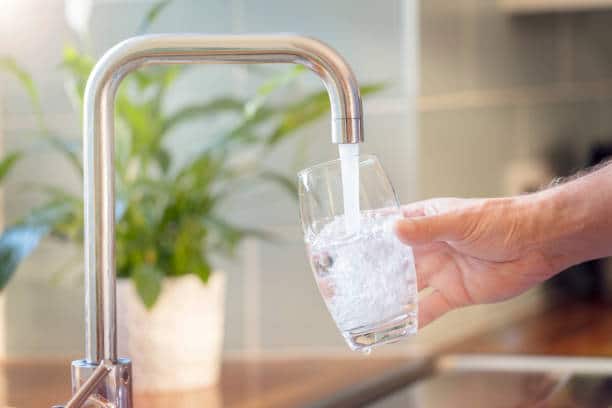Heat Pumps - An Energy Efficient Option
Heat pump hot water systems have soared in popularity in recent years due to their energy efficiency and cost savings compared to traditional electric water heating. Heat pumps work by extracting heat from the surrounding air and using this heat to warm up water stored in a cylinder.
The main benefits of heat pump systems include:
Energy efficient – heat pumps use around 60% less power than conventional electric water cylinders. This adds up to major savings on your power bills over time.
Cost effective – while the upfront cost is higher, the energy savings make them cheaper in the long run. Expect a return on your investment in around 4 years.
Environmentally friendly – producing 60% less carbon emissions makes them a greener choice to reduce your household’s impact.
Versatile – heat pumps work efficiently all year round, even in cooler climates. Modern heat pumps can produce water up to 75°C making them suitable for most households.
While heat pumps tick many boxes, there are some downsides to consider:
Upfront cost – purchasing and installing a heat pump system cost approximately $3,000 to $5,000 which is 2 to 3 times the price of some low-end electric cylinders.
Outdoor placement – an outdoor ground or wall-mounted unit is required with heat pumps. This may not suit all home aesthetics or layouts.
Back-up boosting – most heat pump systems need an electric heating booster to ensure hot water delivery if ambient air temperatures drop very low.
Harnessing the Power of the Sun
Solar water heating has traditionally been popular in sun-drenched regions of NZ like Auckland and Northland. But with recent advances in heat storage technology, solar systems are now a viable option for South Islanders too.
Solar water heating uses free energy from the sun to heat water. Here’s an overview of the benefits:
Slash hot water bills – solar can supply 60-70% of your hot water needs during sunny months. This adds up to hundreds of dollars saved each year.
Extremely eco-friendly – solar systems have the lightest carbon footprint of any water heating method.
Long lifespan – with some basic servicing and maintenance, solar hardware can last upwards of 20 years.
Low maintenance – once installed, solar systems require very little hands-on maintenance. Just keep the solar panels dust-free!
Before going solar, be realistic about the realities:
Higher upfront investment – installing a properly sized solar system for a 3-4 person household starts from around $6,000.
Solar-boost compatibility – for optimal savings, solar systems work best alongside an electric or heat pump boost.
Limited output in winter – solar collectors are less efficient during wet, wintry, and cloudy days. A boost system kicks in to cover hot water needs.
Panel positioning is key – panels must be north-facing and angled correctly to maximise exposure to the sun’s rays.
Comparing Installation and Setup
Installing a brand-new hot water system is a significant project – so what’s involved with setting up heat pump units versus solar water heating?
Heat pump installation is considered less invasive and labour-intensive compared to solar arrays. A specialised plumber can fully install an exterior heat pump unit and interior cylinder within one day. Key steps include:
Positioning the outdoor heat pump module on a stable wall/ground mount orientation towards sunlight and power supply.
Connecting refrigerant piping between the heat pump and inside cylinder units.
Linking the cylinder to existing pipework and electricity mains for water supply, safety valves, and boosting.
Testing all components and commissioning the heat pump system.
By comparison, solar water system installation takes 2-3 days with solar collectors installed on your roof connected to a solar storage tank. This involves:
Securely mounting aluminium frames on north-facing roof sections at the optimum tilt angle.
Fixing solar collector panels onto frames with lags bolts able to withstand high winds.
Running insulated copper heat transfer fluid pipes from collectors down into the ceiling cavity.
Positioning and fitting a solar hot water cylinder for fluid transfer coil and electrical boost elements.
Carefully bleeding air from the fluid system and leak testing all components and pipe joins.
For DIY-ers, professional installation is strongly recommended for both heat pumps and solar systems. Paying extra installation costs upfront will ensure your system is set up safely, efficiently and covered by workmanship warranties.
Making the Right Hot Water Choice for You
When deciding between heat pump vs solar water heating in your region of New Zealand, there’s no definitive winner. Both systems can provide efficient, money-saving hot water when sized and installed correctly for your household and climate.
Seeking professional advice is crucial before investing thousands in a new system. Accredited suppliers can assess your hot water requirements, site positioning for panels or heat pump units, and make tailored recommendations so you can enjoy lower energy bills and guilt-free hot showers for years to come!
Use our contact us page to reach us and we will be more than happy to discuss your hot water situation. Or give us a call on 0800 497658.
At Hot Water Solutions all we do is hot water!

